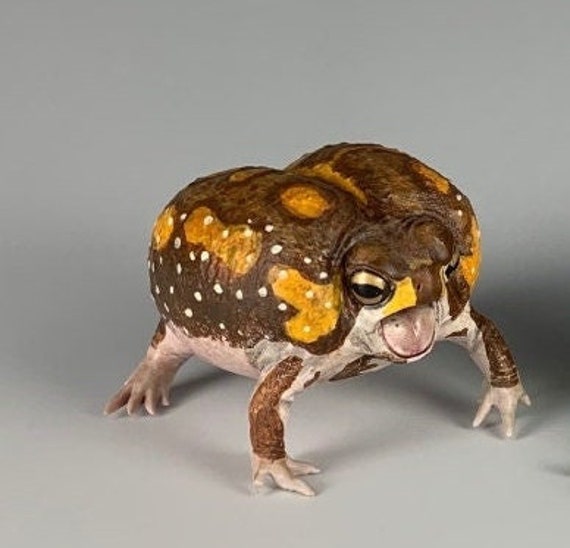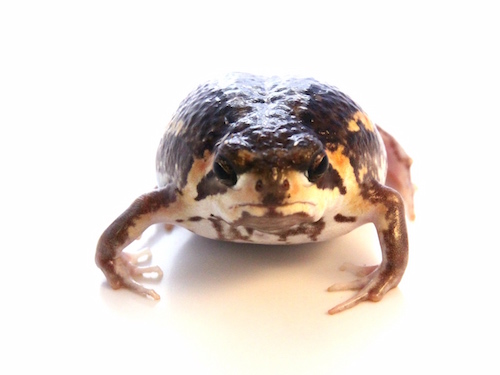Locate Your Perfect Rain Frog for Sale: Study the World of Exotic Amphibians!
Common Health And Wellness Issues in Reptiles: Symptoms and Solutions
In the elaborate world of reptile care, recognizing the common wellness concerns that may affect these distinct creatures is paramount in ensuring their wellness. From breathing infections that can silently hold to metabolic bone illness that can disable, reptiles are vulnerable to a variety of ailments that call for keen monitoring and timely intervention. Whether it's facing parasitical invasions, navigating dehydration problems, or attending to skin conditions that manifest in refined means, being in harmony with the signs and geared up with the understanding of efficient services is important for any reptile proprietor. By delving better right into the nuances of these health concerns and discovering the sensible treatments available, one can guard the wellness and vitality of these remarkable animals.
Breathing Infections
Respiratory system infections in reptiles can considerably affect their total health and need timely interest from seasoned vets. These infections are commonly triggered by microorganisms, fungi, or viruses and can show up via signs and symptoms such as hissing, nasal discharge, open-mouth breathing, and sleepiness. In reptiles, respiratory system infections can be especially testing to detect and deal with as a result of their unique anatomy and physiology. Veterinarians frequently rely on a combination of physical evaluations, diagnostic imaging, and research laboratory examinations to properly determine the underlying source of the infection.
Treatment for respiratory infections in reptiles usually entails a combination of supportive treatment, such as preserving proper moisture degrees and temperature level gradients in the unit, as well as targeted medication to resolve the certain pathogen in charge of the infection. It is crucial for reptile proprietors to monitor their pets closely for any type of signs of breathing distress and seek vet care at the earliest indication of an issue. With timely treatment and appropriate treatment, many reptiles can recuperate fully from breathing infections and resume typical activities.

Metabolic Bone Condition
What variables add to the growth of Metabolic Bone Disease in reptiles?
Metabolic Bone Illness (MBD) in reptiles is mostly caused by a lack of appropriate calcium, phosphorus, and vitamin D3 levels in their diet. Furthermore, insufficient direct exposure to UVB light stops reptiles from manufacturing vitamin D3, which is essential for calcium absorption and bone health.
Not enough humidity degrees can likewise impact a reptile's capacity to metabolize calcium successfully. Regular vet examinations, correct husbandry practices, and a well balanced diet plan are essential to stop Metabolic Bone Illness in reptiles.
Parasitical Invasions
Parasitic infestations posture a substantial health and wellness risk to reptiles, influencing their general well-being and needing punctual veterinary focus. Reptiles can be affected by different parasites, including termites, ticks, inner worms, and protozoa. These parasites can trigger a range of signs, such as weight management, lethargy, skin irritation, diarrhea, and also death if left without treatment.
One typical bloodsucker found in reptiles is the mite, which can trigger skin irritability, anemia, and anxiety. Ticks are one more outside bloodsucker that can send diseases and trigger discomfort to the reptile. Internal parasites like worms and protozoa can result in digestive issues, poor nutrition, and deteriorate the reptile's immune system.
To diagnose a parasitic infestation, a vet may carry out fecal tests, skin scrapings, or blood tests. Treatment typically entails deworming drugs, antiparasitic bathrooms, or in extreme instances, a hospital stay. Preventative actions such as regular vet examinations, appropriate hygiene, and quarantine procedures for new reptiles can help minimize the risk of parasitic infestations and make certain the well-being of reptile animals.
Dehydration and Hydration Issues
Dehydration in reptiles can dramatically influence their wellness and health, demanding prompt intervention and ideal hydration management. Reptiles are vulnerable to dehydration as a result of different factors such as inadequate water consumption, high ecological temperature levels, and certain wellness problems. Symptoms of dehydration in reptiles include sunken eyes, sleepiness, loss of skin elasticity, and Get More Information decreased peeing. If this left untreated, dehydration can bring about severe health issues and also be fatal to the reptile.
To avoid dehydration, reptile proprietors ought to make sure that their animals have accessibility to clean water at all times. The water recipe should be big enough for the reptile to soak in if required, specifically for types that take in water with their skin. Furthermore, keeping proper moisture levels in the reptile's room and providing regular bathrooms can help avoid dehydration.
In instances of dehydration, it is vital to look for vet treatment promptly. A vet might carry out fluids either orally or via shots to rehydrate the reptile. It is important to attend to the underlying source of dehydration to protect against recurrence and guarantee the reptile's general wellness.
Skin Disorders

Conclusion

Respiratory system infections in reptiles can substantially affect their overall wellness and require punctual attention from experienced vets (rain frog for sale). Preventative measures such as routine veterinary exams, appropriate health, and quarantine procedures for brand-new reptiles can aid reduce the threat of parasitic problems and make sure the well-being of reptile family pets
If left without treatment, dehydration can lead to significant health issues and also be fatal to the reptile.
Regularly checking your reptile for any adjustments in skin texture, shade, or appearance can assist in early detection and treatment of skin ailments, promoting the total health and well-being of your scaly companion. - rain frog for sale
In conclusion, reptiles are susceptible to numerous health concerns such as respiratory system infections, metabolic bone disease, parasitic invasions, dehydration, and skin ailments.